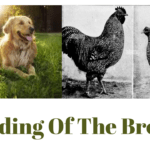Introduction to Baby Bunnies
Rabbit infancy and development
Baby bunnies, also known as kits, are among the most adorable and fascinating creatures. Their journey from newborns to fully grown rabbits is an incredible process. In this article, we’ll explore the growth, development, and care of infant rabbits, with a focus on their first week of life.
Importance of bunny care and bonding
Proper care and bonding are essential for a baby bunny’s well-being. As a pet owner, you play a crucial role in nurturing and supporting the development of your infant rabbit. This guide will help you understand the various stages of growth and how to ensure your bunny thrives.
Newborn Bunny Video Footage
Capturing the first week of life
Newborn bunny footage showcases the delicate first moments of a rabbit’s life. Watching these videos provides a unique glimpse into the world of baby animals and their endearing behaviors. By observing bunny milestones, you can gain insights into the developmental process and better understand how to care for your infant rabbit.
Observing bunny milestones
From the moment they are born, baby bunnies go through a series of milestones. During their first week, they develop rapidly, and observing these changes can be both educational and heartwarming. Videos of baby rabbits provide an opportunity to witness these milestones in real-time, deepening your appreciation for these extraordinary creatures.
Baby Bunny Growth and Development
Physical changes in the first week
A baby bunny’s first week is a time of significant growth and change. In just seven days, their weight can double, and they will start to develop fur. Their eyes and ears, which are initially closed, will begin to open, allowing them to become more aware of their surroundings.
Behavioral changes
Along with physical changes, you’ll also notice behavioral changes in your infant rabbit. As they become more mobile, they’ll begin to explore their environment and engage in playful activities. They’ll start to hop around, interact with their littermates, and develop essential skills that will help them thrive as adults.
Hopping and exploring
Hopping is a hallmark of rabbit behavior, and baby bunnies are no exception. As they grow and become more agile, they’ll begin to hop around their enclosure, exploring their surroundings and discovering new places to hide and play.
Infant Rabbit Care
The role of pet owners in nurturing
As a pet owner, you play a vital role in nurturing and supporting your baby bunny’s growth and development. By providing a safe, clean, and comfortable environment, you can help ensure that your infant rabbit thrives during its first week and beyond. Regular monitoring of your bunny’s progress will help you detect any potential health issues early and address them appropriately.
Ensuring proper nutrition
Proper nutrition is essential for baby bunnies to grow strong and healthy. In their first week of life, they will rely on their mother’s milk for sustenance. If you are hand-rearing an infant rabbit, it is crucial to provide them with a suitable milk replacer, which can be obtained from a veterinarian or pet supply store. Always consult with a rabbit-savvy vet for guidance on feeding and nutrition for your baby bunny.
Health concerns to be aware of
During their first week, baby bunnies are particularly vulnerable to various health issues. Regularly checking your infant rabbit for signs of illness, such as lethargy, diarrhea, or lack of appetite, is crucial. If you notice any worrisome symptoms, consult with a veterinarian immediately to address the problem and ensure your bunny’s well-being.
Rabbit Bonding and Socialization
The importance of social interaction
Social interaction is vital for a baby bunny’s emotional and mental well-being. By bonding with their littermates and human caretakers, they develop essential social skills and form strong attachments. Providing ample opportunities for socialization will help your infant rabbit become a well-adjusted and happy member of your family.
Techniques for bonding with your bunny
Bonding with your baby bunny is a rewarding experience that strengthens your connection and promotes trust. Some useful techniques for bonding with your infant rabbit include gentle handling, offering treats, and spending time together in a calm and quiet environment. Always be patient and respectful of your bunny’s boundaries, allowing them to approach you at their own pace.
The Irresistible Cuteness of Baby Animals
The appeal of furry, cuddly creatures
There’s something undeniably appealing about baby animals, with their soft fur, innocent expressions, and endearing behaviors. Baby bunnies are no exception, capturing our hearts with their adorable antics and irresistible charm. Owning a pet rabbit can bring joy, companionship, and a sense of wonder as you watch them grow and develop.
The emotional benefits of pet ownership
Caring for a baby bunny can offer emotional benefits for both you and your furry friend. Pet ownership has been linked to reduced stress, increased happiness, and a greater sense of purpose. By providing a loving home for your infant rabbit, you’re not only enriching their life but also enhancing your own well-being.
Conclusion
The first week of a baby bunny’s life is a time of rapid growth, development, and bonding. As a pet owner, your role in nurturing and supporting your infant rabbit is essential for their overall well-being. By understanding the various stages of growth and providing proper care, you can help ensure that your baby bunny thrives and becomes a cherished member of your family.
FAQs
When do baby bunnies open their eyes and ears?
Baby bunnies typically open their eyes and ears between 10 and 12 days after birth.
How often should I feed a hand-reared infant rabbit?
Hand-reared infant rabbits should be fed every few hours during their first week of life. Always consult with a rabbit-savvy vet for specific guidance on feeding and nutrition.
What type of enclosure is best for a baby bunny?
A spacious, well-ventilated enclosure with soft bedding, a hiding spot, and room for exploration is ideal for a baby bunny. Ensure the enclosure is secure and free of hazards, such as sharp objects or small items that could be ingested.
When can I introduce solid food to my baby bunny?
You can gradually introduce solid foods, such as hay and pellets, to your baby bunny when they are around 2 to 3 weeks old. Always monitor their progress and consult with a rabbit-savvy vet for guidance on proper nutrition.
How can I help my baby bunny feel more comfortable with handling?
To help your baby bunny feel more comfortable with handling, approach them gently and calmly, using a soft voice to reassure them. Offer treats as a reward for positive interactions, and avoid sudden movements or loud noises that may startle them. With patience and consistency, your bunny will become more at ease with handling over time.








